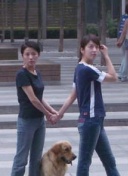


One of the most iconic chants heard during the World Cup matches is the "La La La" chant. This rhythmic chant has become synonymous with the tournament, creating a unique atmosphere in stadiums around the world. But where did this chant originate?
The "La La La" chant gained popularity during the 1978 World Cup held in Argentina. The Argentine fans, known for their passionate support, started singing "La La La" during matches to show their enthusiasm and unity. This simple chant quickly caught on and spread to other countries participating in the tournament.
The "La La La" chant is not limited to a specific language or culture. The beauty of this chant lies in its universal appeal, as fans from various countries come together in harmony to chant "La La La" during matches. This unifying chant transcends language barriers and brings people together through the shared love for football.
During the World Cup, as fans gather in different stadiums, the chant echoes through the stands, creating a sense of camaraderie and excitement. It becomes a unifying symbol of the tournament, reminding everyone that for these few weeks, the world is united in the joy of football.
Aside from its unifying nature, the rhythmic quality of the "La La La" chant adds to its popularity. The repetitive and catchy melody allows fans to easily join in and synchronize their voices. This rhythmic chanting brings a sense of energy to the matches and helps build an electric atmosphere.
It is not uncommon to see players from different teams getting caught up in the rhythm and joining the fans in chanting "La La La." This interaction between players and fans creates a unique bond between them, as they are united in their love for the game.
The "La La La" chant has become a tradition in World Cup tournaments, carried on from one generation of football fans to the next. Parents pass down their love for football and the chants associated with it to their children, creating a shared experience and a sense of pride.
As the tournament approaches, fans eagerly anticipate the opportunity to chant "La La La" in support of their national teams. It has become a symbol of national pride, as fans proudly display their team colors and chant together in unity.
Even after the World Cup ends, the echo of the "La La La" chant lingers in the memories of fans worldwide. It represents the spirit of the tournament, the passion of the players, and the dedication of the supporters.
Years later, fans reminisce about the magical moments created by this chant, the emotions felt in the stadium, and the joy of celebrating victories together. The "La La La" chant has become a symbol of the shared experiences, unforgettable memories, and the unbreakable bond that football creates among fans.
In conclusion, the "La La La" chant has become an integral part of the World Cup experience, uniting fans from across the globe with its universal appeal. Its origins in Argentina during the 1978 tournament have led to a tradition passed down through generations. The rhythm and energy of the chant bring matches to life, creating a unique atmosphere. And even after the tournament ends, the legacy of the "La La La" chant lives on in the hearts of football fans worldwide.